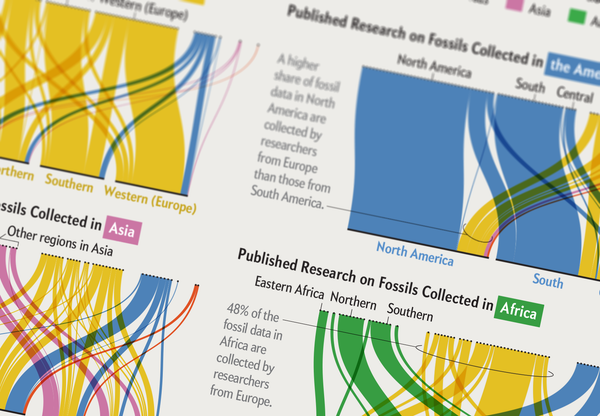Rich countries overwhelmingly dominate paleontology research, even when the fossils do not originate there, a new study shows. Researchers analyzed 26,409 paleobiology papers from 1990 to 2020 and found that scientists in high- or upper-middle-income countries contributed to 97 percent of fossil research. And those from former colonial powers disproportionately controlled fossils from their former colonies. For example, French researchers conducted a quarter of all paleontology studies in Morocco, Tunisia and Algeria; German scientists carried out 17 percent of research on fossils from Tanzania; and 10 percent of studies on South African and Egyptian fossils were conducted by British investigators.
“This was very eye-opening,” says Nussaïbah B. Raja-Schoob, a paleontologist at the Friedrich Alexander University of Erlangen–Nuremberg in Germany, who co-led the study, published in Nature Ecology & Evolution. “With colonialism, certain countries already had an advantage. After independence, the knowledge wasn’t transferred back, so a lot of countries had to start from scratch and with less money.”
On supporting science journalism
If you're enjoying this article, consider supporting our award-winning journalism by subscribing. By purchasing a subscription you are helping to ensure the future of impactful stories about the discoveries and ideas shaping our world today.

